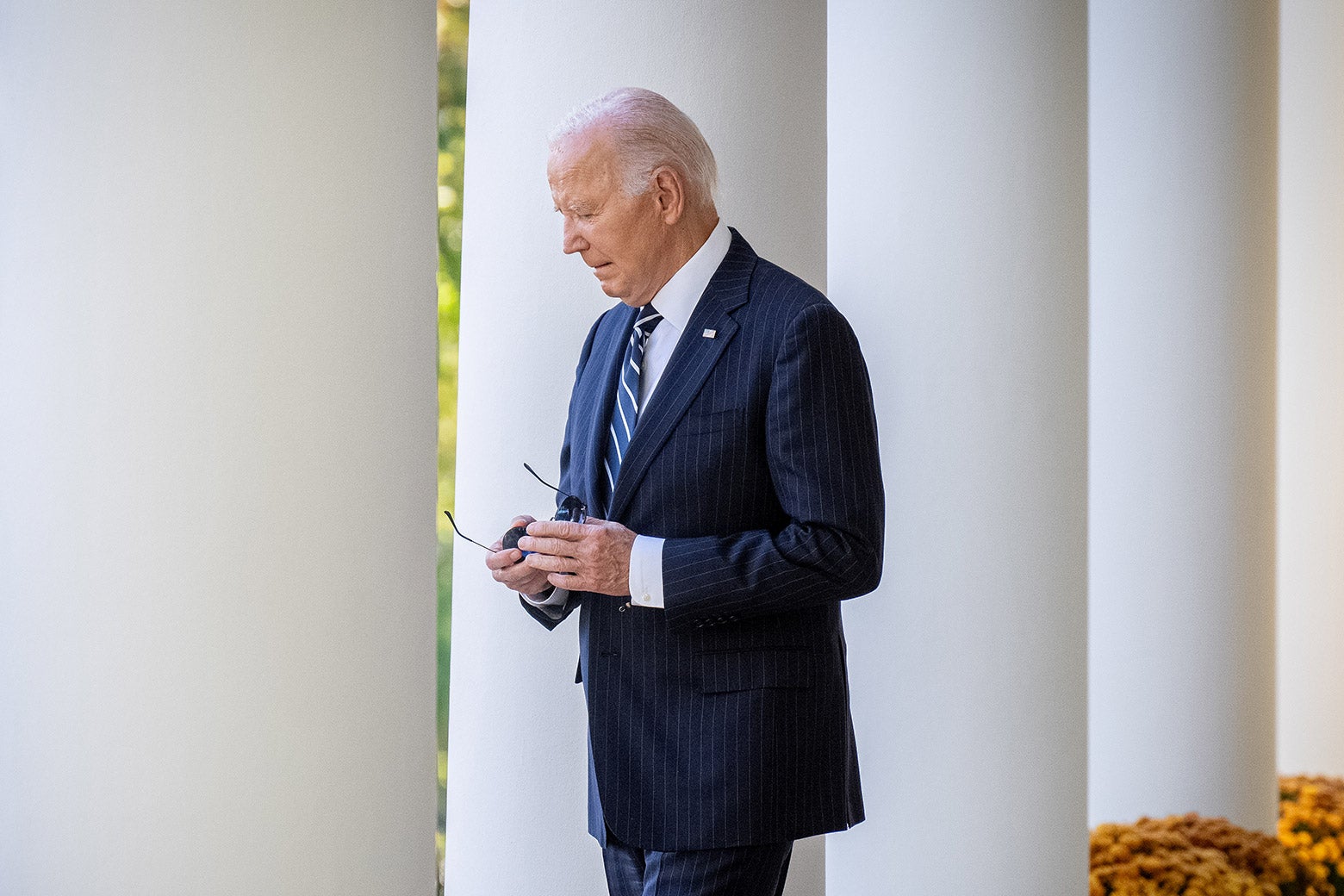There are 40 men on federal death row who have been convicted of capital offenses by the federal government going back as far as 1993. The offenses committed by federal death row inmates include drug-related murders, a murder in a national park, killings during terrorist attacks, and the fatal shooting of a bank guard during a robbery. Eighteen of them are white; 15 are Black; six are Latino; one is Asian.
All told, there have been 50 federal executions in the past century, 13 of which were carried out by the Trump administration between July 2020 and January 2021.
In contrast, Biden has a mixed record on capital punishment. Unlike his predecessor, he has not carried out any federal executions, but, as the Atlantic’s Elizabeth Bruenig explains, “neither has he instructed [Attorney General Merrick] Garland to stop pursuing new death sentences, or to stop defending ongoing capital cases.”
Now that the 2024 election is over and Trump will be returning to the White House, it is even more important that President Biden do as I urged him to do last July and use his clemency power to empty the federal death row. He should make sure that none of the men now there will ever be put to death.
Sometimes it is hard to get out front and do the right thing. But in this case, Biden can follow in the footsteps of several governors who waited until late in their terms to issue mass commutations to people awaiting execution in their states.
That is the least that America’s first abolitionist chief executive can do. Like those governors, Biden has ample grounds to use his clemency power to advance the cause of justice and to save lives.
As former Sen. Russ Feingold wrote last year:
A blanket commutation would realize Mr. Biden’s anti-death-penalty stance and move the United States further along the path to abolition. It would also prevent another federal execution spree such as that carried out in the Trump administration. The commutation of federal death row sentences could be a defining feature of Mr. Biden’s legacy of, as he describes it, restoring “the soul of the nation.”
He can take inspiration from many sources, including former Oregon Gov. Kate Brown, who commuted the sentences of all 17 men on her state’s death row in December 2022 on her way out of office. At the time, Brown said: “I have long believed that justice is not advanced by taking a life, and the state should not be in the business of executing people—even if a terrible crime placed them in prison. … This is a value that many Oregonians share.”
“Unlike previous commutations I’ve granted to individuals who have demonstrated extraordinary growth and rehabilitation,” she explained, “this commutation is not based on any rehabilitative efforts by the individuals on death row. Instead, it reflects the recognition that the death penalty is immoral. It is an irreversible punishment that does not allow for correction; is wasteful of taxpayer dollars; does not make communities safer; and cannot be and never has been administered fairly and equitably.”
To offer one other example, Biden could learn from what Republican Illinois Gov. George Ryan did in 2003 when he emptied his state’s death row by issuing a blanket commutation to all 167 inmates. At the time, Ryan acknowledged his own journey, a journey like Biden’s, from death penalty supporter to critic.
Unlike Brown, Ryan did not condemn state killing itself. Instead, he focused on what he saw as crippling defects in its administration.
He noted that “In Illinois last year we had about 1,000 murders, only 2 percent of that 1,000 were sentenced to death. Where is the fairness and equality in that? The death penalty in Illinois is not imposed fairly or uniformly because of the absence of standards for the 102 Illinois State Attorneys, who must decide whether to request the death sentence.”
“Should geography,” Ryan asked, “be a factor in determining who gets the death sentence? I don’t think so but in Illinois it makes a difference. You are 5 times more likely to get a death sentence for first degree murder in the rural area of Illinois than you are in Cook County. Where is the justice and fairness in that? Where is the proportionality?”
And the Illinois governor called special attention to miscarriages of justice in the death penalty system, including its racially discriminatory history and the fact that Illinois had, at that time, released 17 men who had been falsely convicted from death row.
Other governors who have done what Brown and Ryan did, and what Biden should do, include Lee Cruce, governor of Oklahoma from 1911–1915, Winthrop Rockefeller, governor of Arkansas from 1966–1970, and Tony Anaya, governor of New Mexico from 1982–1986. Each of them took advantage of the period immediately before they left office to do what might have been too much of a political risk to do when they had to stand for reelection.
And now it is President Biden’s turn.
Many of the problems highlighted by Brown and Ryan when they commuted death row apply to the federal death penalty as well. Moreover, the federal death penalty has been afflicted with the same problems of racial injustice that have plagued the states where it is also legal.
The American Civil Liberties Union reports that “Defendants of color make up the majority of federal death row and the majority of modern federal executions. Furthermore, modern Attorneys General seek the death penalty at far higher rates if the victim is White, and White federal defendants are far more likely to have their death charges reduced to life sentences through plea bargaining.”
These issues, along with the injustice of a government putting anyone to death, provide ample reason for Biden to issue a mass commutation. But so far Biden has not seemed eager to wield his clemency power in this or any other area.
Writing in September of this year, law professors Rachel Barkow and Mark Osler note that “Biden has granted 25 pardons and commuted the sentences of 131 other people. … That is a mere 1.4 percent of the petitions he has received. … No modern U.S. president, going back to Richard Nixon, has had a rate so low.”
“Clemency,” they argue, “is more important than ever in an era of grossly excessive punishments and mass incarceration. Timidity is not a path to legacy.”
Like the governors who overcame such timidity and granted clemency in capital cases, President Biden, now facing the end of his time in the White House, has, as Bruenig correctly observes, “the freedom to act on his values and save dozens of lives.” He ought to use his clemency power “to keep his campaign promises, and to honor the dignity of human life.”
Preventing another gruesome Trump execution spree is one final thing the president has the power to do. It’s an opportunity he must not pass up.



